Most people assume pigs can eat almost anything, and while that may partially be true before you toss them that leftover cauliflower, you should find out whether it’s good for them or not.
You may think all vegetables are okay for pigs, but that is not precisely the case.
Can pigs eat cauliflower?
Pigs can eat cauliflower if they eat it in moderation as a supplement to their regular diet. While cauliflower is a great treat option for pigs, not all vegetables are safe. Knowing what benefits cauliflower offers and what vegetables you should avoid feeding your pig is important.
Although many vegetables are good for most animals, too much of a good thing can sometimes become bad.
The more you learn about cauliflower and its health effects on pigs, the better equipped you will be when it comes to your livestock.
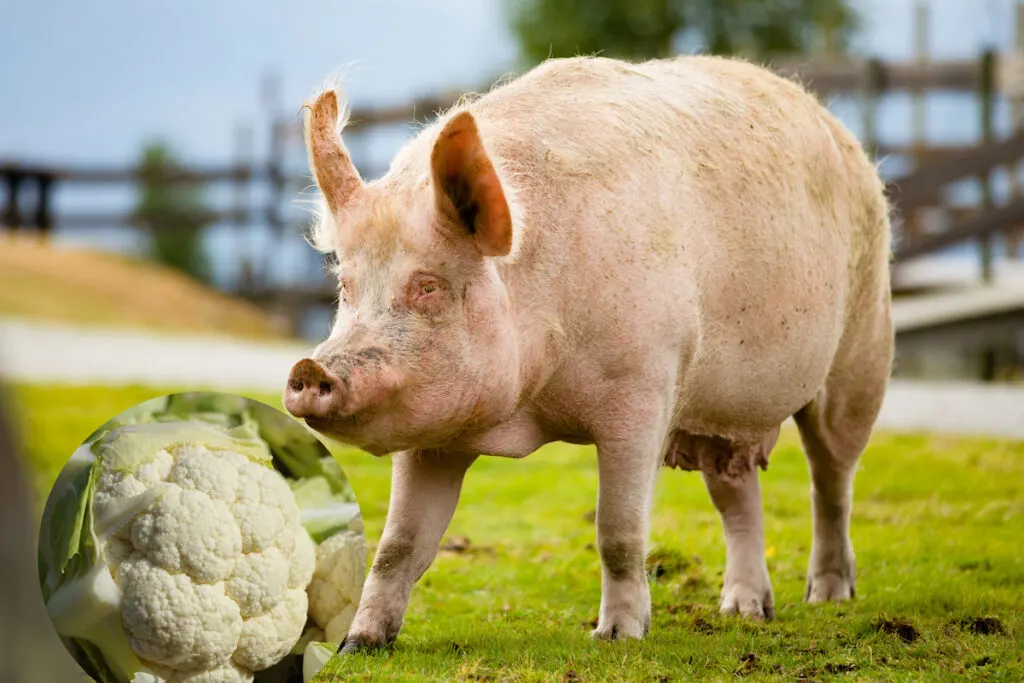
Table of Contents
Is Cauliflower Safe for Pigs to Eat?
Cauliflower is safe for pigs to eat as long as it is fresh and uncontaminated.
This vegetable is not toxic to pigs, nor does it cause any digestive issues in pigs when eaten in moderation.
Owners that choose to include cauliflower in their pig’s diet should only feed them a small amount daily.
Instead of feeding a pig a large portion of this vegetable in one day, split it into smaller portions over several days.
While cauliflower is safe for pigs to eat, it may not be one of their favorite vegetables due to its taste.
If your pig does not seem to like this vegetable or refuses to eat it, then offer a different vegetable and take cauliflower off the menu for a while.
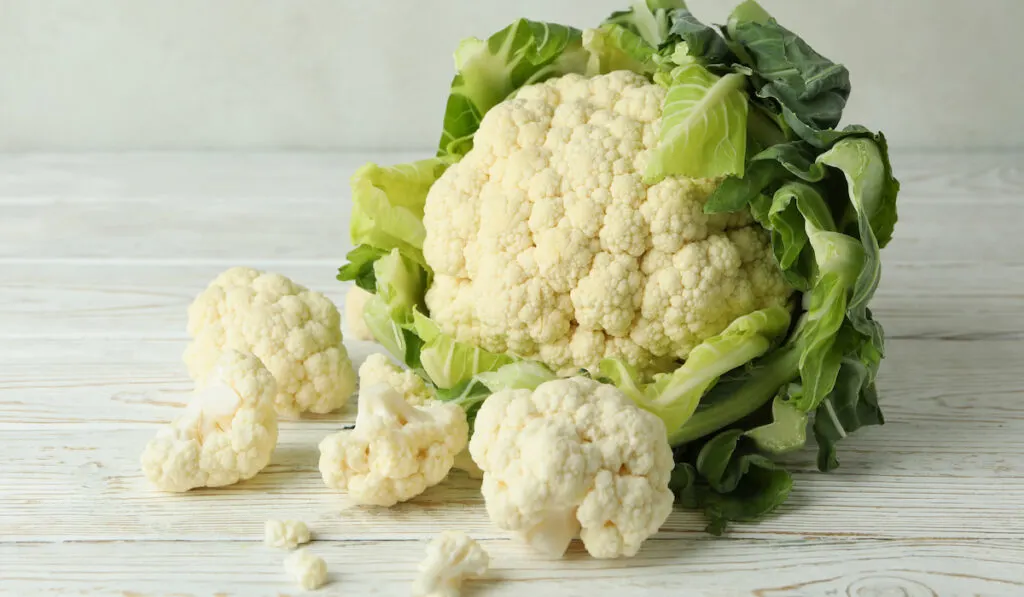
How Healthy Is Cauliflower for Pigs?
Cauliflower is very healthy for pigs because it not only contains fiber, which aids in their digestion, but it also contains several nutrients that are good for the animal.
This vegetable contains ample amounts of vitamin K, C, and folic acid.
Cauliflower is low in calories and sodium, so it will not cause much disruption when added to a pig’s diet.
If you ensure your pig can still eat its regular food, then a little cauliflower only adds some extra nutrients and fiber to its daily diet.
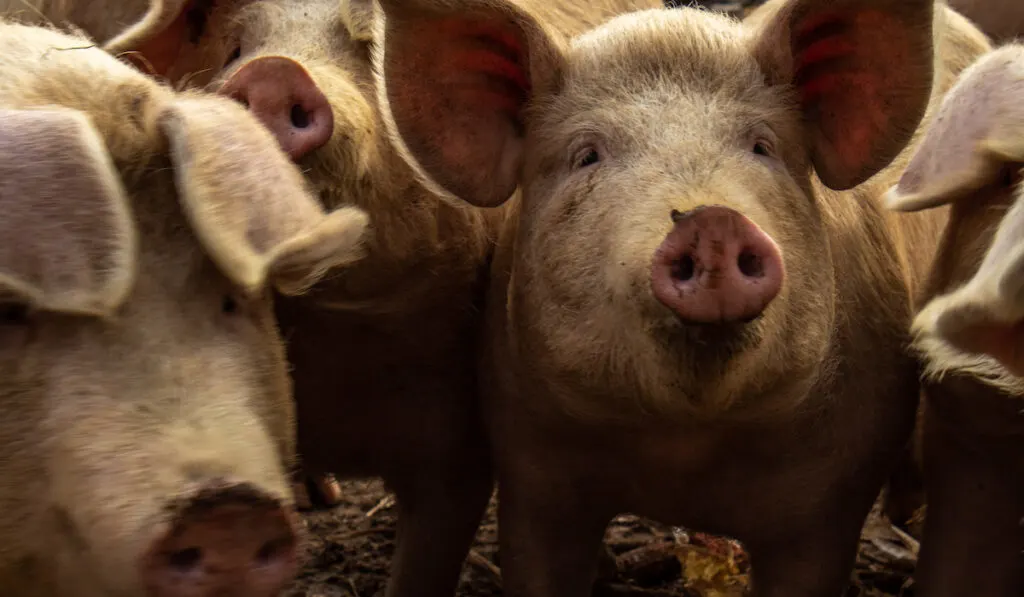
How Much Cauliflower Can a Pig Eat Daily?
The amount of cauliflower a pig can eat daily depends on age and size.
There really is not a specific limit on how much cauliflower a pig should eat daily, but it should serve as only a small percentage of their daily diet.
A young, small pig can safely eat a small handful of cauliflower as an added treat.
A larger, adult pig can safely eat a cup or two of cauliflower alongside their regular food.
Cauliflower should never serve as a pig’s only meal for the day as it does not provide the nutrients they need to thrive and grow.
Pigs also naturally desire a variety of foods, so they will not be too thrilled about a cauliflower-only diet.
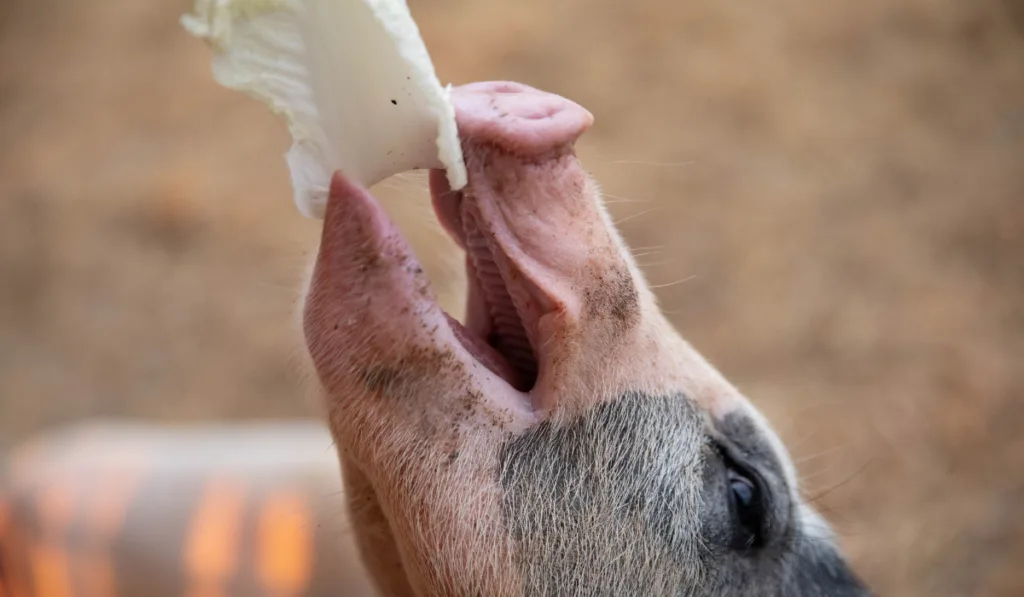
What Other Vegetables Can Pigs Eat?
Pigs can eat a variety of vegetables besides cauliflower, including broccoli, squash, green beans, cabbage, Brussels sprouts, and more.
To make them easier to eat, consider chopping the larger veggies up into smaller portions.
Pigs should only eat cauliflower and other vegetables as a supplemental treat and not as a main part of their diet.
It is important that pigs are always able to eat their regular meals. Otherwise, they can suffer from malnutrition and digestive problems.
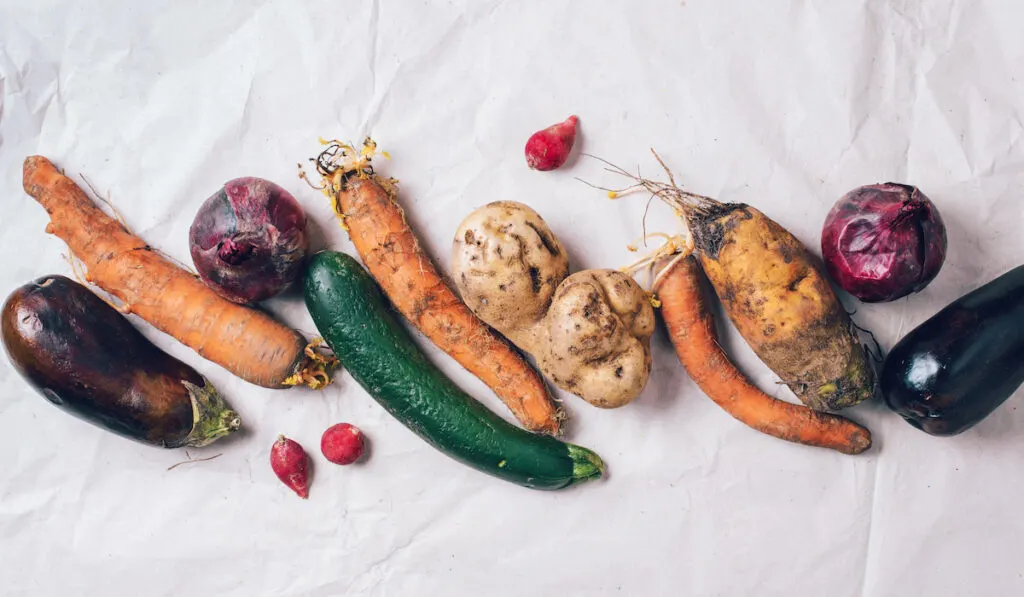
Can I Feed My Pig Moldy Vegetables?
While it may be tempting to feed a pig moldy vegetables that would otherwise end up in the trashcan or compost bin, try to avoid the temptation.
Decaying vegetables are not very safe for pigs, even though your pig may gobble them up without a second thought.
Moldy foods, even vegetables, that are unsafe for humans to eat can cause digestive issues in pigs.
To be safe, toss any rotten food in the compost bin instead of in your pig’s food bowl.
While a few spoiled vegetables will not likely lead to fatal consequences, they often contain bacteria and pests that are not healthy for pigs.
A young, old, or health-compromised pig may not be able to recover from the severe gastrointestinal upset that moldy foods can bring.
Instead of only feeding old, decomposing vegetables to your pig, buy some extra fresh cauliflower or squash at the grocery store specifically for your pig.
Better yet, grow your own backyard vegetables and plant a few extra ones for the pig.
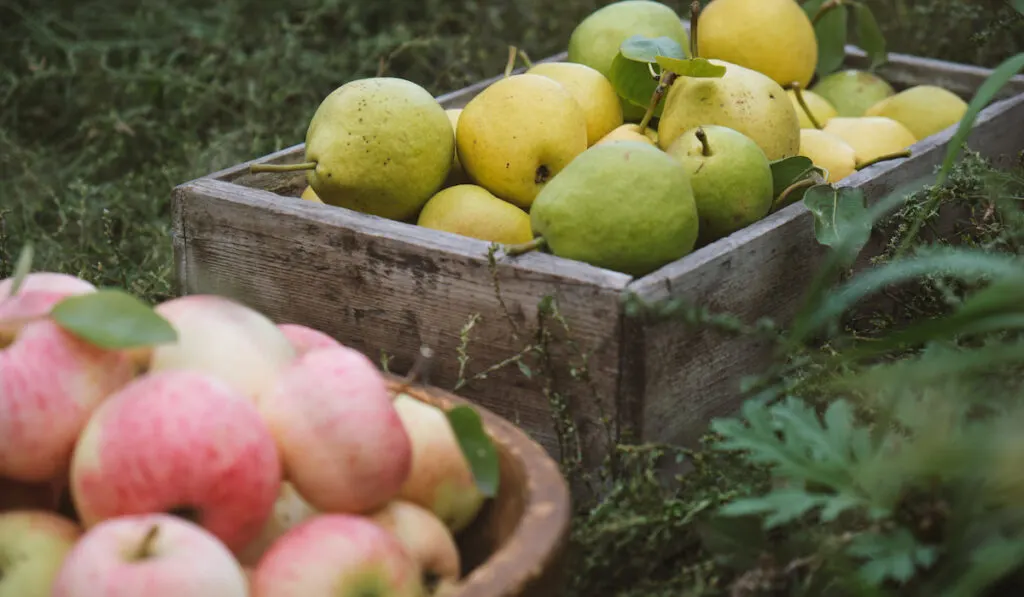
What Vegetables or Fruits Should Pigs Never Eat?
There are some vegetables and fruits that pigs should never eat, including potatoes and avocado rinds.
You should also avoid feeding pigs the pits or seeds of certain fruits like apples, apricots, peaches, pears, or avocados.
Potatoes are a member of the nightshade family and contain glycoalkaloids that can be dangerous for pigs and other animals.
The pits and seeds of certain fruits contain a dangerous substance that is very unsafe for animals in the right quantities.
It is also important to never feed pigs any vegetables contaminated by other meats or fish due to the health risks.
Cauliflower and other vegetables that have come in contact with raw meat or fish can cause gastrointestinal issues in pigs and even death in some cases.
Final Thoughts
Now that we know that cauliflower is safe and healthy for pigs to eat, the question is, what other tasty vegetables will you start feeding your pig?
Fresh vegetables make a great addition to any pig’s diet, and trust me, not only will your pigs appreciate it, but it will also help them lead long and healthy lives!
Resources
Learning more about cauliflower and its benefits to a pig’s diet was an interesting journey. I used my own experience raising pigs and the following sources to bring this article to fruition.
